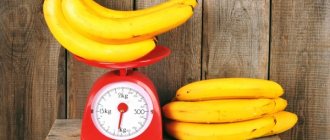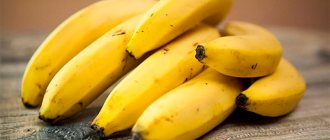What is fasting
Fasting is the voluntary refusal to eat for a certain period of time. Used for therapeutic purposes, fasting is called fasting-dietary therapy (RDT), one of the main tasks of which is the prevention of human health.
The following principle works in the method of health fasting: when food stops entering the gastrointestinal tract, the body enters “recovery mode”: the endocrine system is activated, and the body begins to use its internal resources to maintain vital functions. This condition is called an acidotic crisis, which serves as a signal that the body has begun to engage deep healing mechanisms.
Those who regularly practice fasting claim that when done correctly, periodic fasting helps cleanse the body, rid it of the harm of accumulated waste and toxins, and also rejuvenate the body. With a competent approach, the beneficial properties of fasting can fully complement the complex of therapy for a number of diseases.
What is the most beneficial period of fasting?
How long you will have to abstain from food depends on the initial reason that prompted you to start the process. 1-2 days are enough for cleansing. You can achieve weight loss after 7 days. For beginners, alternating fasting and normal days throughout the week is more suitable.
Long hunger strikes are allowed only under the guidance of doctors. The optimal time for doing this if you want to “clean up” and lose extra pounds is considered to be 10 days. For therapeutic purposes, therapy is carried out from the 21st day; in advanced cases of the disease, it is allowed to extend the period to 30 days or more.
Official medicine recognizes fasting as a healthy dietary therapy that promotes longevity. Despite positive reviews from doctors, this method is not suitable for everyone. If your health worsens, you should choose a more comfortable method of treatment.
The article was approved by the editors
Types of fasting
Nutritionists distinguish several types of fasting, each of which has its own unique effect. The ability to distinguish between them will help you choose the most suitable option for yourself.
Medicinal
Therapeutic fasting is a complete refusal of any food, and sometimes liquid, for health purposes. To do this, throughout the entire period of fasting, a person completely limits himself to food intake - until the end of the appointed period, during which the set therapeutic goal is achieved.
An acidotic crisis does not occur immediately, but only with prolonged abstinence from food: its precursors are signs of increased irritability, weakness, constant feeling of hunger, bad breath, headache, dizziness and nausea in the fasting person. However, immediately after the crisis has passed, the state of health improves significantly, and the symptoms of transition gradually disappear. This type of fasting most actively causes changes in the functioning of the body, promoting the activation of the “self-healing” mode.
Due to the long period of therapeutic fasting, its benefits, as well as its purpose, will be individual in each case: much depends on the characteristics of the body, on the general state of health and resistance to hunger.
Medical
Medical fasting is practically no different from therapeutic fasting. The only difference is that in the first case, the procedure is carried out in clinics or sanatoriums under the strict supervision of a doctor. To achieve maximum benefit in accordance with the diagnosis, additional healing methods are included in the fasting program: physiotherapy, drinking mineral water, physical therapy, sauna, swimming, massage, etc.
Water
The basis of water fasting is the complete abstinence of solid and liquid food, as well as any drinks: only water is allowed to be consumed. The most beneficial intake will be distilled, melted, alkaline or structured water. The most popular option is a one-day water fast, which, if all the rules are followed, will provide invaluable benefits for the liver and cardiovascular system.
Wet
Unlike water fasting, in wet fasting it is allowed to consume herbal decoctions and freshly squeezed juices without pulp. This option will be more gentle on the body, while the benefits for the body are preserved.
Dry
Dry fasting is the most severe form of fasting. A person completely refuses to consume any dry or liquid food, as well as water. There are two variations of this method: without limiting external contact of the body with water or with a complete refusal of hygiene procedures throughout the entire period of fasting.
Interval
Intermittent fasting has become especially popular in the United States, where it is called fasting. There are even fasting communities in IT companies in Silicon Valley, whose members are confident that periodically refusing to eat helps not only achieve a new level of performance, but also prolong life.
With intermittent fasting, the day is usually divided into two “windows”, in one of which you need to put all meals for the day, and the second you need to leave for fasting. There are several options for window durations (12/12, 1/23, 10/14), but the most common is considered to be the 8/16 ratio - when food intake occurs only 8 hours a day, and the remaining 16 are given under the “hungry window”. This version of intermittent fasting is most effective and beneficial because it allows most of your hunger to occur during sleep, and meals are spread out throughout the day.
Carrying out fasting
You need to find a comfortable time for it. If this is a period of acute stress, maximum workload, it will not be suitable. It's easier to go hungry on vacation.
How to fast correctly:
- Stick to a routine: get up and go to sleep at the same time. Make hygiene procedures and exercise ritualistic.
- Be passionate. Various creative activities (embroidery, drawing, etc.) help not to be distracted by “hungry thoughts” and fill you with energy.
- Don't waste your energy. For arguments, for unnecessary household chores that are not urgent, for activity on social networks that takes up resources.
- Try to avoid stress. They often lead to the desire to “eat” them.
- Keep a fasting diary. He is both a chronicler of the journey and a working motivator.
And in order not to break down, use the practice of meditation, mantras that allow you to find peace of mind, as well as tips from the presented video:
Benefits of fasting
The main benefit of fasting is the rapid mobilization of all reserve reserves of the body, which helps improve the functioning of major systems and organs, as well as lowering the level of “bad” cholesterol and blood sugar.
To restore energy reserves, the body begins to consume fats and ketone bodies. This helps enhance the production of adrenal hormones (corticosteroids), which have anti-inflammatory and restorative effects.
Fasting also stimulates the cleansing of the blood from harmful chemicals coming from outside.
In 2020, the University of Southern California conducted a study that proved the benefits of therapeutic fasting for the body of men: as part of the experiment, participants were asked to periodically fast from 2 to 4 days for six months. As a result, the effect of strengthening the immune system (several times) was revealed, as well as a significant improvement in sexual activity.
Interesting! Dry fasting has the most effective beneficial effect on the body's immune system. It is known that most microbes, viruses and protozoan bacteria are able to reproduce exclusively in a liquid aqueous environment. During temporary complete dehydration, active cells take all the water from the lipid (fat) layer of the body, and pathogenic microorganisms die.
For weight loss
Wanting to lose weight, many women turn to the fasting method, because periodically refusing to eat food has effective benefits for the female figure:
- Even without receiving food from the outside, the body continues to spend calories to maintain its vital functions, while using up fat reserves.
- By cleansing the body during periods of hunger, a woman’s metabolism is normalized, as a result of which the body begins to quickly get rid of extra pounds.
- During fasting, the volume of the stomach decreases significantly. After you get out of hunger, you may notice that the feeling of fullness comes much faster.
- Unlike the diet practiced by most women, fasting does not result in a rapid gain of lost weight. On the contrary, the body will continue to maintain the acquired weight; it is only important to follow all the recommendations after a long fast.
To cleanse the body
Indian yogis, who are considered the pioneers of therapeutic fasting, are confident: fasting is the most effective way to cleanse the body both physiologically and spiritually.
Often, all the food a person consumes does not have time to be completely digested by the body, as a result of which food stagnation forms in the stomach, which hunger helps remove.
In addition, fasting helps cleanse the body of toxins and poisons that accumulate in cells and organs throughout life. Fasting can be used as a separate cleansing method or combined with other techniques. By refusing to eat food, the gastrointestinal tract is unloaded, and the body activates self-cleaning mechanisms. Fasting has the greatest benefit for the liver, helping the body's natural filter to get rid of the harm of accumulated toxins and toxic substances.
You can find out more information about the benefits and harms of intermittent fasting, its beneficial properties and effects on the human body from the video:
What's wrong with people?
If you are a malnourished child (underweight), then temporary hunger is harmful to you. For children with normal or overweight – benefit (20).
Fasting for 48 hours in adults increases anger and at the same time intellectual abilities (21).
A meta-analysis of 3 studies did tend to favor moderate fasting (22).
There are also benefits for older people if they are normal or overweight. Thus, reducing kcal consumption by 30% for 3 months led to better memory testing, also by 30% (23).
In general, for people, if there is no underweight, then moderate hunger or weight loss stimulates the brain.
How many days can you fast
Daily fasting once a week provides the fastest benefits and is the safest method for the body.
Over time, you can try fasting for a period of 2 to 4 days, which is considered more gentle than the option of a week-long fast. At the same time, in such a short period the body does not have time to completely rebuild itself and use all self-cleaning mechanisms. Therefore, for a therapeutic effect, after short-term fasting practices, it is recommended to carry out a procedure that includes the onset of an acidotic crisis - after consultation with a specialist.
The duration of such fasting depends entirely on the person's early experience. This is influenced by two main factors: the level of slagging in the body and resistance to starvation (those who have not had prior experience of unloading find hunger more difficult to bear). In a person with sufficient practice of fasting, an acidotic crisis occurs already on the 4th - 5th day of fasting, in a beginner - after 7 - 14 days.
Interesting! Doctors have recorded a world fasting record of 250 days. And ongoing studies have shown that the main cause of death during famine is not the lack of food, but psychological stress.
Kinds
Depending on the diet, fasting occurs:
- complete (on water) - refusal of food and drinks with the ability to quench thirst with plain water;
- absolute (dry) - refusal of food and water, sometimes partial (water procedures are allowed) and complete (ban on them);
- combined - alternating “dry” and “water” options.
Depending on the duration:
- short-term - 1-2 days;
- “golden mean” - from 3 days to 1 week;
- long-term - more than 7 days (10, 14, 21, 40 days, 9 weeks).
Depending on the organization scheme:
- Factional. Involves 3 fractions of fasting for 14 days. Between them there is a recovery period for the body from 1 to 2 months. The course is six months.
- Stepped. One stage - a week of fasting, 3 days of recovery. 3-4 stages are organized.
There is also intermittent fasting, but it has nothing to do with healing, since its effect on the body is scientifically proven and has slightly different goals. You can read about it on this page.
The benefits and harms of prolonged fasting
If you follow all the main rules, the benefits of prolonged fasting for the body will manifest themselves:
- in deep cleansing of the body from toxins and toxic substances;
- improving metabolism;
- reducing blood cholesterol levels;
- normalization of the body’s natural protective functions;
- strengthening the cardiovascular system;
- getting rid of defective (including cancer) cells;
- rejuvenation and healing of the body;
- active fat burning;
- reducing the risk of diabetes;
- eliminating stress and depression.
However, it is always worth remembering: any fasting causes serious stress to the body, and long-term fasting in particular. Under no circumstances should you go into prolonged fasting without prior preparation: this can cause irreparable harm to the body, in the form of metabolic disorders, liver and kidney function; as well as in the accumulation of poisons that negatively affect the cerebral cortex.
Contraindications
There is a significant list of contraindications in which periodic fasting can adversely affect the health of the body. These include:
- Underweight (weight deviation more than 15% from standard values or BMI less than 18.5).
- Tuberculosis of any organ.
- Diabetes mellitus type I.
- Any pathology of the thyroid gland, hyperthyroidism and hypothyroidism.
- Heart rhythm and conduction disorders (atrial fibrillation, AV block II and III degrees).
- Condition after myocardial infarction (within 30 days from the moment of the vascular accident).
- Chronic heart failure IIb - III degree.
- Chronic viral hepatitis.
- Cirrhosis of the liver.
- Chronic renal or liver failure of any etiology.
- Thrombophlebitis.
- Arterial hypotension.
- Gallstone disease, bile stagnation.
- Peptic ulcer of the stomach and duodenum, gastritis.
- Pregnancy and breastfeeding period. During pregnancy, the fetal brain may die from nutritional deficiency. During breastfeeding, the baby’s body receives significantly less nutrients.
- Age less than 14 and over 75 years.
Temporary refusal to eat is stressful for the human body. It is necessary to take into account contraindications in order to obtain exceptional benefits from this process.
How to prepare for fasting
Before experiencing all the beneficial properties of fasting, you need to carefully familiarize yourself with the chosen method and its features: how to properly enter and exit such hunger, and what difficulties may arise.
It is important to think about the optimal period for fasting: holidays should not be scheduled at this time, when the temptation to relapse increases several times. The ideal time would be a vacation: it will be quite difficult to work with restricting yourself in food, since the body needs constant energy to work.
Equally important is the physical preparation of the body for the upcoming famine. A few days before fasting, it will be useful to gradually reduce the amount of portion consumed, giving the body the opportunity to readjust to a new regime. Before entering into a fast, it is advisable to eat more vegetables and fruits: their fiber helps stimulate intestinal motility, which will prepare the digestive system.
Hunger and Intelligence
In a study in mice, intermittent fasting led to improved memory in a maze test and a thicker layer of hippocampal pyramidal neurons. The hippocampus is the center of short-term memory, helping you remember a phone number or a person’s appearance for a while. Even the dendritic network has become enlarged. What does this mean? Roughly speaking, this is a small pumping of the brain, like muscles (15). Your brain becomes more functional and there is less risk of dementia as you age! (16, 17)
Proliferation or multiplication, or neurogenesis of hippocampal cells. 30% more RAM in the brain after 3 months in a group of mice. Not bad huh (18)?
Most likely, one of the methods of increasing intelligence - the increase in our beloved BDNF, a protein that protects your nerves and helps them build new connections - speeds up learning. Increase by 50% (19 )
How to fast properly
The benefits and harms of fasting are determined by a competent approach. To maximize the beneficial effect of the procedure, it is important to follow the main rules.
One-day fasting
- You need to enter and exit hunger gradually and smoothly. You can’t eat enough at night and then immediately limit your food intake in the morning. Preparing for hunger should begin several days in advance, gradually eliminating the consumption of meat, fatty and heavy foods, as well as sugar.
- Drinking water is a must because water helps remove toxins and poisons from the body.
- Individual program. It will be quite difficult for a person accustomed to regularly eating food to immediately go without food for 24 hours. You need to start small: 8 hours, then 10 - with a gradual increase in duration. As a result, 24 or 36 hours without food will be much easier on the body.
Unlike the popular belief, during daily fasting, weight loss does not occur due to muscles: their growth, on the contrary, can be increased if moderate physical activity is added, and this can be usefully used by men during active training in the gym.
Three-day fasting
Researchers at the University of Southern California conducted another experiment, wanting to test the benefits of a three-day fast for the body. The result showed: the main benefit of a three-day fast on water is to renew the immune system. Stem cells begin to actively divide, which helps restore the body's defense system.
To avoid harm from possible negative consequences, you must follow the rules:
- The first attempts at fasting should be done with drinking water - at least 2 liters per day. Severe dehydration can lead to negative consequences and the opposite result.
- Physical activity is required. The load on the body during hunger accelerates the growth of muscle mass and provokes effective fat burning.
- Coming out of fasting should take at least two days: during this time, you need to gradually return to your usual diet, starting with eating the foods that are easiest for the body - fruits and vegetables.
Seven-day fasting
The main benefits of long-term fasting are rapid weight loss and cleansing of the body. However, it is worth remembering the rules that help prevent harm to the procedure both for the digestive system and for the body as a whole.
- 2-3 weeks before the seven-day fast, you need to completely eliminate from your diet all foods that are difficult for the stomach, flour and sweets, and gradually switch to vegetables and fruits.
- The time to end the fast should be equal to the duration of the fast itself. The minimum period will be a week, but doctors recommend stretching this period to 10 - 14 days.
- It is advisable to reduce your physical activity to a minimum. It is very important to go outside and breathe fresh air. However, you should be careful here: everyone tolerates hunger differently, so it is recommended to walk under the supervision of an accompanying person.
Why should you fast?
The word “need” can be safely removed. There is no such strict indication when the only therapeutic measure for a person is hunger. But there is an experience called therapeutic fasting. And he's interesting.
What experts who support therapeutic fasting say:
- Overeating combined with physical inactivity are the main enemies of modern man. Excess weight, cardiovascular pathologies, risks of diabetes and atherosclerosis inevitably follow the habit of eating more than necessary. Therefore, fasting not only cleanses the body, but also teaches it to reduce demands.
- Excess food poisons the body - undigested remains rot and disrupt the integrity of the microflora. And this is fraught with the development of inflammatory processes.
- Overeating weakens a person's overall immunity. Lethargy, weakness, apathy, lack of vitality, drowsiness are a consequence of improper, excess nutrition. Few people can give it up at one point, but the practice of fasting helps the body itself reduce food consumption.
- Many products contain a predominance of food additives that enhance the taste. There is a craving to eat it again and again, and as a result, overeating progresses. And if you introduce the practice of fasting into your life, the sharpness of normal taste sensations will return. And products with flavor enhancers will seem like real “chemicals” and will no longer end up in the refrigerator.
And this is only part of the possible arguments! But they are followed by completely different people - from ordinary people who are well-read and accustomed to analyzing information, to doctors of various profiles who are loyal to such methods of healing. Moreover, disputes arise even between representatives of the same profession.
For example, gastroenterologist Anatoly Bliznyuk has been practicing daily fasting for many years and argues for the benefits of this method.
But a man of the same profession, doctor Nikolai Kapralov, CMN, fundamentally disagrees with him, assuring that any fasting is an unphysiological practice. The doctor says that there cannot be breaks in nutrition, since if the hydrochloric acid produced in the stomach is not neutralized with food, it will damage the gastric mucosa. And there are dozens of different opinions. They all talk about only one thing: you need to study information and adapt it to the characteristics of your body, be critical and be able to draw impartial conclusions. By the way, another popular opinion about fasting, to which both scientists and psychotherapists are inclined, is fasting as a cult. It becomes a philosophy, a challenge to oneself, an attempt to change not so much the body as the consciousness. For this reason, in particular, believers go through a 40-day fast relatively easily, while atheists can barely last half a day in this regime .
Physiologists believe that no specialist in the world will give a competent answer as to whether fasting is beneficial. While this issue is being studied, there are many interesting experiments, studies, successful implementations of theories, but there are still enough contradictions.
The right way out
Correct entry from the fasting mode will guarantee the prevention of risks of harm from the procedure. Breaking out of fasting is divided into several stages:
- Follow a diet of freshly prepared vegetable and fruit juices. You can drink them every two hours, ¼ cup. Pineapples, citruses, pomegranates and grapes have the most beneficial cleansing effects.
- Transition to the fruit and vegetable table, when vegetable soups, light salads and compotes begin to be gradually introduced into the menu. Meals should be taken in small portions without adding salt and sugar.
- Return to the usual diet, which at first excludes heavy protein foods: meat and fish dishes, eggs and legumes.
Recommended reading: Benefits of pineapple
The output characteristics also largely depend on the chosen feeding method:
- Hunger for up to 3 days. Upon recovery from short-term fasting, meals should be frequent, approximately 5-7 times a day in small portions. The first three days should be accompanied by the consumption of fruits and vegetables, then you can return to your normal diet.
- Five-day fast. On the first day of recovery from such hunger, you are allowed to drink only water and freshly squeezed juices; on the second and third days you can move on to the fruit and vegetable table. On the fourth and fifth days, dairy products and dried bread are introduced. In the following days there is a complete return to the usual diet. Important! For fasting to be as beneficial and effective as possible, you need to eat small portions after breaking it, chewing your food thoroughly.
- Seven-day fast. Restricting food for such a long period can be compared to a full-fledged medical procedure. At the end of such fasting, an acidotic crisis often occurs, accompanied by extremely unpleasant symptoms of cleansing the body. After the onset of a crisis, the starving person’s well-being returns to normal, but the way out of hunger must be carried out just as slowly.
General rules of fasting
Despite the serious differences in the methods, there are common points in them.
Remember:
- It makes sense to start fasting with a daily course;
- entering the course is always accompanied by a full exit from it;
- you need to promptly respond to the body’s request to empty the intestines and bladder (do not tolerate it);
- physical exercise is not contraindicated during short-term fasting;
- During fasting, you need to find time every day for self-massage or massage (this way the internal organs are stimulated).
The main advice is to try to enlist the support of a specialist.
How not to lose your temper
During the period of fasting, taste buds become more receptive to food, which is why the risk of food loss increases several times. There are several tips that will help distract your brain from thoughts about food and stay in a state of hunger for the entire necessary period:
- Keep yourself busy with something that will help you redirect your attention and leave no time for thinking about a snack. This could be work, home life, relaxing procedures or moderate physical activity.
- Water procedures or going to the bathhouse. In addition to distracting from food, the bath will enhance the beneficial properties and effectiveness of fasting: accumulated waste and toxins are removed through the skin along with sweat. Water procedures also help maintain body temperature, which can drop during periods of hunger.
- Devote time to yourself: take a walk in the fresh air, do yoga or Pilates, read a book. Every person has a list of things that have been put aside. Refusal to eat can be used to bring them to life.
- Recharge yourself with psychological support from those around you: these can be friends and relatives, as well as participants in various forums and groups dedicated to weight loss. Having felt moral support, it will be much easier for a person to go towards the goal, and the results of other people will create additional motivation.
How to do it correctly
Have you decided to fast in order to lose weight and improve your health? Then do it correctly:
- Choose one of the author's methods.
- Study the material in great detail: rules, entrance and exit diagrams, reviews.
- Find followers of this technique, try to communicate with them. It’s even better to make an appointment with a naturopath who promotes and supervises this direction and can control the entire process.
- Get a medical examination. If you have serious illnesses, get treatment first.
- Prepare yourself mentally and physically.
- Do everything in strict accordance with the recommendations of the methodology, without introducing anything new.
Entrance
If you do not prepare the body, this is fraught with rapid failure, complications and lack of results. Each author describes in detail the rules of the preparatory stage for his methodology. Some people spend 2 weeks on it, others a week. The longer it lasts, the better. So how do you get started?
- Avoid the most harmful foods: fast food, snacks, soda, alcohol, processed foods.
- Remove everything fatty, sweet, pickled and smoked from your diet.
- Avoid frying as a method of cooking.
- Over the course of a week, gradually eliminate meat, fish, eggs and dairy products from the menu.
- Increase daily consumption of clean water.
Therapeutic fasting and smoking are incompatible, so preparation involves a complete cessation of this harmful habit. It is also recommended to start practicing breathing exercises or yoga.
The process itself
The rules of therapeutic fasting are prescribed in the daily regimen. It is recommended in most methods in this form with minor adjustments:
- Early awakening. If this is not dry fasting, then a glass of water on an empty stomach (possibly with the simultaneous use of a laxative), an enema (Paul Bragg * excluded them).
- Morning work-out. Walk in the fresh air. Yoga. Breathing exercises.
- Warm shower or bath.
- Physiotherapeutic procedures for the treatment of the underlying disease (if you are fasting in a hospital setting).
- Salon procedures for weight loss (wraps, masks, spa and other relaxation).
- Walk in the fresh air.
- Favorite activity (reading, watching a movie, communicating).
- Work with the motivational sphere: auto-training, affirmations.
- Physical activity: working in the fresh air, cleaning the house with the windows open, a set of light exercises.
- Favorite hobby.
- Warm shower or bath.
- Any relaxation before bed, except TV and gadgets (reading, repeating affirmations, pleasant conversation).
*Paul Bragg is an American representative of naturopathy and alternative medicine, who invented his own method of fasting. We wrote about it earlier.
During water fasting, you must remember to constantly drink water. It’s better to use distilled water, although you can use melted water, non-carbonated mineral water or chilled boiled water. It should be at room temperature (warm is also allowed). To satisfy hunger, you need to drink it in small sips. The schedule can be different: every hour or as desired.
Most naturopaths strongly recommend going out of town, into nature, for the entire fasting period. A good option is to relax in a sanatorium, if the doctors allow you to practice such unconventional techniques. There you can sign up for physiotherapeutic procedures for the overall health of the body. You can go to the country. Relaxation and fresh air will enhance the healing effect.
The use of gadgets and television is discouraged due to the blue light from screens, which is harmful to health. The first ones are allowed only for work purposes, the second one is for watching your favorite movie to get positive emotions.
Exit
Coming out of therapeutic fasting is no less important than entering it. If at the preparation stage you can break out and enjoy something forbidden, and there will be no obvious harm from this, then everything is different here. The desire to eat is so strong that most people, having endured fasting, break down the next day after it ends and... end up in a hospital bed. The digestive tract, which has been resting all this time and is in a relaxed state, cannot digest the large amount of food that has fallen on it. This leads to toxicity.
There was such a case. Nikolaev in his book gives the example of an elderly woman who, in order to get rid of pain (with a diagnosis of arthrosis of the knee and ankle joints), independently carried out a 12-day fast. She endured it to the end, but the next day she ignored the recommendations on the correct way out. The professor advised starting with a glass of diluted vegetable juice (without spices or pulp). She decided to enjoy the chicken broth. The result was that I ended up in the hospital with protein poisoning. Resuscitation efforts had no effect, and death was recorded.
It is more difficult to break out of dry fasting: the next day you can only drink water. From water it is a little easier: juices from raw vegetables diluted with water and strained are allowed. Paul Bragg allowed a little carrot salad right away for breakfast (after 1 and 3 days of fasting). And then every day you need to introduce 1-2 products into your diet:
- 1st day - drinking (water, vegetable juices, weakly brewed green tea);
- 2nd - salads from fresh vegetables, seasoned with a small amount of olive oil;
- 3rd - fruits, berries, nuts;
- 4th - cereals, seeds, sunflower seeds.
As for meat, eggs and dairy products, some representatives of alternative medicine suggest abandoning them altogether in favor of a vegetarian diet. It will ensure that the body is well prepared for further fasting. Others advise consuming them in limited quantities (for example, a couple of times a week). For others, their quality is important: if meat, then chicken breast or beef; if dairy products, then natural and with minimal fat content.
The results will be much more effective if, in the intervals between therapeutic “marathons,” you adhere to a vegetarian diet or at least the principles of a healthy diet.
Additional recommendations
Where?
Organizing long-term therapeutic fasts (more than 3 days) at home is a dangerous undertaking with unpredictable consequences. They are carried out under the constant supervision of either doctors who do not reject this direction of alternative medicine, or naturopaths, the authors of such methods, in private health centers. If life-threatening side effects occur (hunger shock, dehydration, etc.) in a hospital setting, they are quickly stopped and help further recovery of the body.
Important information! When independently carrying out a long hunger strike at home, there were cases of death. Therefore, when deciding on something like this, you will have to take full responsibility for the consequences upon yourself.
When?
Most of the author's methods recommend operating in the summer. Firstly, it is easier to organize entry and exit with fresh fruits and vegetables. Secondly, in winter this procedure is more difficult to tolerate, since the body does not have enough energy to heat the body when the ambient temperature drops. This is fraught with weakened immunity and infections.
How to withstand it?
Fans claim that this kind of hunger strike is much easier to tolerate than many mono-diets and fasting days. However, you shouldn't take their word for it. This applies primarily to those who have already repeatedly conducted similar tests. Their bodies are accustomed to stressful situations and can coordinate to block hunger. In fact, even one-day abstinence from food is a constant struggle with the temptation to eat something.
To survive, you need to properly distribute your water intake - for example, a glass per hour. To forget about hunger pangs and not think about food, you need to fill the whole day with pleasant activities. Go shopping, just take a walk, go to a museum that you didn’t have time for before. You can read or watch a fascinating series that will make time pass unnoticed. Warn your family not to tempt you with goodies and to support you.
If it becomes completely unbearable, and dizziness to the point of fainting and unbearable heartburn are added to attacks of hunger, take half a teaspoon of honey and slowly lick it off. The main thing is that the brain receives a signal that at least some food is coming. An alternative is to hold a crust of black bread in your mouth. The swallowed saliva will be filled with its taste and smell, blocking hunger.
Are there any relaxations?
Each author has his own view on the strictness of observing a therapeutic fast. Paul Bragg, for example, allows you to eat 1 tsp per day. lemon juice and honey, Marva Ohanyan offers juices, Nikolaev offers rosehip decoction. In any case, the first time you are unlikely to be able to sit on water alone (or even without it). Start with more gentle methods.
What to do if things get bad?
The best option is to immediately stop fasting treatment, organize the right exit and go to the hospital as soon as possible to normalize the condition.
Can I take medicine?
Most methods prohibit doing this, which causes criticism and dissatisfaction from official medicine. If you have chronic diseases that require constant use of drugs that support life and normal well-being, you cannot stop taking them.
Do you need to play sports?
Any physical activity with a few caveats is useful for both improving the health of the body and losing weight. Running and intense strength training are prohibited. But morning exercises, yoga, swimming, walking, breathing practices and simple sets of cardio exercises are recommended.
Harm of fasting and contraindications
Despite all the beneficial properties, fasting has many negative aspects, neglecting which can cause serious harm to your body.
- Prolonged hunger always entails severe stress, as the body begins to perceive the lack of food as a threat to life. In this regard, the amount of bad cholesterol increases rapidly, which increases the risk of thrombosis.
- Prolonged fasting can harm your metabolism. In the absence of food, the body gradually rebuilds to a different level of maintaining vital functions, intensively storing fat reserves. The body also uses the first portions of food received to store fats in order to protect itself in the future.
- Both the beneficial effect and the harm of fasting directly depend on a person’s physique. For thin people, for example, a more gentle fasting regime is needed.
Attention! Hunger is a serious procedure in which failure to comply with the basic rules of entry and exit can result in death. This is especially important during long fasts.
In addition, hunger has many contraindications. You should absolutely not go hungry:
- with severe encephalopathy;
- acute coronary heart disease;
- heart and kidney diseases;
- acute tuberculosis;
- diabetes;
- infectious polyarthritis;
- thyrotoxicosis.
Dry fasting
A special type of fasting in which there is a complete ban on both food and water. You can't even rinse your mouth with water.
A mild type of fasting allows you to douse yourself with water, take a bath or shower. Strict prohibits doing such actions.
It is believed that dry fasting effectively burns fat deposits in the shortest possible time. Viruses and bacteria die faster with this type of fasting, since water is necessary for life.
When there is a shortage of water, the body's cells reduce the rate of division, as a result of which certain diseases are treated.
If dry fasting lasts 10-14 days, then only strong and healthy cells remain in the body, weak ones die. However, you should be careful because due to the lack of water, the brain and nervous system are overloaded. In addition, there is a feeling of drowsiness, lethargy and lethargy.
Is intermittent fasting better for gaining muscle mass?
There are many “experts” who enthusiastically promote the idea of intermittent fasting as the best way to gain lean muscle mass. Essentially they say that if you want to grow muscles and burn fat at the same time, then this is the regime you should adhere to. It's true: eating after a fasted workout triggers a much more powerful anabolic (muscle protein synthesis) response in the body. But this is not proof that such training will lead to greater muscle growth in the long term. One significant downside to fasted training is the fact that consuming 50-60 grams of carbohydrates before exercise is an easy and effective way to improve performance. And the better you train, the more weight you can lift, the more muscle mass and strength you can gain over time. This is one of the main reasons why fasted training is still more effective during the period of “drying” rather than gaining weight. Many studies show that you can gain muscle mass during intermittent fasting (Linganes - 16/8 plan), but it is no more effective than regular eating. So, just like with fat burning, it all comes down to your personal preference.
Why does a person need to fast?
In the process of evolution, man has acquired unlimited possibilities in many areas of life, nutrition is no exception. Having a large selection of products at hand, humanity has become spoiled, no longer restraining itself in its weaknesses, forgetting what is actually useful and what is not.
Following standard stereotypes about the regularity of meals, formed over the years of the need to eat 3-4 times a day, a person ceases to understand when he is actually hungry and when he is not. As a result, the organs responsible for the digestion process find themselves hostage to ordinary attachment. An excess of unnecessary microelements and calories leads to contamination of the intestines, blood circulation, overtime work of the digestive tract provokes “fatigue” of all biological processes, resulting in overall negative dynamics, excess weight gain and premature aging.
But people are slaves to their habits; giving up your favorite piece becomes as difficult as getting a new job. To break this vicious circle, to help improve the quality of your life, you need to give yourself the opportunity to stop, take a break, look at your personal diet from the outside and dare to take decisive measures, including healthy fasting.
Some people sit down at the table thinking that they don't really want to eat, but they force themselves to eat lunch. Another person cannot stand even three hours without going to the refrigerator. Such “beacons” indicate a malfunction that has formed, which is psychological in nature, but unfortunately has physical manifestations.
Popular Intermittent Fasting Patterns
Finally we get to the most important part: how to put intermittent fasting into practice. One must never forget one thing: no schemes or systems make it possible to deceive the rule of energy balance. In the end, your results will depend not on the intervals at which you eat, but on how much you eat. It all comes down to calculating calories and nutritional supplements. And if someone claims the opposite, then he is either telling a lie or is poorly informed. So, if you want to see results from intermittent fasting, it needs to be treated like any other diet. It's important to calculate and track your calorie and nutrient intake and avoid common mistakes that prevent many from effectively losing weight. So, the most popular intermittent fasting schemes.
Leangains
The classic 16/8 intermittent fasting regimen. Created by Martin Berkhahn. She is the one who is popular in the world of bodybuilding. Many athletes have been on it for years. It simplifies life, saves time, gives guaranteed and stable results, and allows you to gain lean muscle mass (without fat). Here's how it works: You don't eat anything for 16/14 hours (men/women) and then eat for 8/10 hours (men/women)—the "eating window." The period of “hunger” begins after the last meal. For example, if you are a man and your last meal was at 21:00 in the evening, then you will not eat anything until 13:00 the next day. If you are a girl, then stop fasting 2 hours earlier, at 11 am. While fasting, no calories of any kind are allowed, but black coffee, non-caloric sweeteners, diet soda, and sugar-free chewing gum are allowed. It is also recommended to keep a consistent clock schedule (eat and fast at the same time) as this helps control hunger. Other important points:
- Eat a high protein diet, up to 2 grams per kilogram of body weight per day. This is vital for muscle maintenance and growth.
- On training days, you eat more calories and carbohydrates than on rest days. This is known as carb cycling and can be very beneficial for building muscle and strength with minimal fat gain. Sure, it sounds great, but carb cycling is still more suitable for advanced athletes.
- Fasted training (optional, optional). Martin Berkhahn is a big proponent of fasted training. But it allows you to eat before physical activity if you prefer to train well-fed.
- Large post-workout meal. Whether you're training fed or hungry, Berkhahn recommends eating a lot after your workout. He advises eating 30 to 50 percent of your daily calories, with plenty of protein (50 to 100 grams).
Leangains, or the 16/8 intermittent fasting regimen, was originally created for bodybuilders and people who care about their figure.
Eat Stop Eat
Eat Stop Eat is an intermittent fasting method that was created by Brad Pilon, and it is very simple:
- You don't eat anything for 24 hours once or twice a week.
- You can start fasting whenever you want, but you must abstain from food for 24 hours.
- It must be real hunger. No food, but, as in the 16/8 (Linganes) scheme, no-calorie drinks are allowed. If you cannot survive for 24 hours without food, then simply try not to eat for as long as possible and gradually increase the duration to a full 24 hours. To relieve hunger, Brad Pilon suggests starting fasting on days when you are very busy. In addition, the first meal after 24 hours of fasting should not be large. You shouldn't try to "replenish" all the calories you've lost in one sitting.
- It is also recommended to exercise regularly, especially strength training and weight lifting, to improve body composition.
Eat Stop Eat allows you to lose excess weight and is good for health, strengthens the immune system, lowers cholesterol levels in the blood, provides permanent fat loss and slows down aging. Suitable only for those who can withstand a long time without food and are not inclined to overeat after fasting. For people who regularly go to the gym and play sports, the 16/8 intermittent fasting scheme (Linganes) is more suitable.
Warrior Diet
This is an intermittent fasting scheme created by Ori Hofmekler, based on an analysis of the diet of Roman legionnaires. It is described in detail in his best-selling book, The Warrior Diet. The basic idea in a nutshell: involves fasting for 20 hours each day and eating most of your food in one meal each evening. The word “hunger” is written in quotes because this diet allows several small snacks of protein, fruits or vegetables throughout the day, which increases insulin levels and the body comes out of a state of complete hunger. Additionally, Hofmekler recommends starting your big meals with vegetables and then moving on to protein and fat. If you're still hungry after this, you can add carbs.
The practical advantage of this regimen is calorie control.
Carbohydrates come at the end, not at the beginning - this way the risk of overeating is reduced. Hofmekler's theory is based on the fact that humans are naturally programmed to eat at night. And in this way, we can improve our body composition and health by obeying our genetics. According to him, if we do this, we will be able to burn more fat, build muscle, recover better from workouts, sleep better and much more. Unfortunately, most likely the author greatly overestimates the benefits of the diet. In fact, there is not enough scientific evidence to support these claims. It's very difficult to stick to the warrior diet unless you really prefer one big meal a day. It is not very suitable for those who regularly work out in the gym. You won't be able to train fully. In addition, you are unlikely to provide the body with enough protein. The same applies to carbohydrates, and accordingly, can lead to a decrease in testosterone levels.
Diet every other day - alternating fasting
This is an intermittent fasting method that allows you to alternate days of normal and restricted eating. On “normal” days, you eat more or less the usual amount of food, based on your daily caloric expenditure. On “restricted” days, consume 20-25% of this amount (about 500 calories for most people). This way you can limit your total calorie intake per week, which will lead to weight loss.
The alternate-day diet is beneficial for overweight (or obese) people who lead a predominantly sedentary lifestyle, but is not suitable for those who are very active and exercise regularly.
The main problem is that you won't be able to consume enough protein on your "restricted" days, and won't have the energy to do a full workout.
Eat when you are hungry or when you have time
The easiest way to incorporate fasting into your diet is to let your appetite and work schedule dictate when you eat. For example, if you wake up and are not hungry, then you don’t have to have breakfast. Wait until you're hungry. Or perhaps you find yourself in a situation where the only food available is something you really don't want to eat. Skip this meal and fill up on calories, protein, fat and carbohydrates later. Remember that the most important thing is your total caloric and nutritional intake for the day. How many meals you get them in doesn't really matter. So if you skipped a lunch where you planned to eat, say, 30 grams of protein, 70 grams of carbohydrates, and 20 grams of fat, you can simply add those amounts to your next meals.
What are the benefits of hunger?
Having ventured into an externally and internally difficult period of abstinence, we would like to know what the benefits and possible harms of fasting are? This is where decades of medical practice comes to the rescue, the research of which states:
- the very renunciation of food improves well-being;
- guarantees cleansing of the intestines and blood vessels;
- helps normalize blood pressure;
- cure hemorrhoids;
- promotes tissue rejuvenation at the cellular level;
- weight loss;
- renewal of consciousness, a more optimistic view of the world around us;
- reassessment of priorities;
- self-confidence.
For people who want to lose extra pounds, one hunger test will not be enough. To carry out high-quality weight loss, you will additionally need to develop a set of physical activities, sleep and wakefulness, and try to ensure a stable emotional balance.
In general, short walks in the fresh air, relaxing baths, massages, yoga or other moderate exercises will be useful companions for hungry people.
Such “gifts” are not easy, but if you focus on the end result, you can understand that a person himself is the master of his body and only he decides how to look, how to feel, how to meet each new day with good health and without illness.
Possible complications
In the process, some unpleasant accompanying symptoms arise:
- Bad breath. To reduce it, it is useful to drink more fluid, but it is unlikely that you will be able to get rid of it.
- Belching, heartburn. Do a rinse, an enema, and if using the dry method, add water.
- Dizziness. Occurs when there is a sudden change in body position. Fresh air and careful movements will come to the rescue. If the situation does not improve and reaches the point of fainting, you should stop fasting.
- Pain in joints, muscles. They occur due to diseases in them, or excessive stress, so you should not overwork, do not lift heavy objects, and do not overcool.
- Heartache. If the pain does not go away, take a cardiogram and, if necessary, interrupt treatment.
- Toothache. Occurs due to untreated processes in the oral cavity or changes in the composition of saliva. Rinsing with chamomile decoction and avoiding using a toothbrush and wiping with gauze instead will help.
- Renal colic. They indicate that the healing process is going well and kidney stones are coming out. To relieve the condition, you can take a warm bath.
- Limb spasms. Occurs with prolonged restriction due to a lack of sodium chloride. Before fasting, it is good to eat plenty of raw fruits and vegetables.
- Sleep disorders. If you feel drowsy, allow yourself to sleep; if you have insomnia, just rest without sleep; if your condition does not improve after a couple of days, the hunger strike will stop immediately.
Intermittent fasting vs traditional diet
For example, look at a large systematic review of intermittent fasting conducted by scientists at the University of Sydney. After analyzing 40 studies (compared to traditional diets), scientists found no significant benefits related to body composition, fat loss, insulin sensitivity or hormones. That is, in theory it looks better than in reality. Unfortunately, however, research has not taken into account the contribution of exercise, which provides many of the health benefits of intermittent fasting. It would be much more useful to consider this question: Is intermittent fasting, regular exercise, and healthy eating better than traditional diets under the same conditions? The reason is that exercise is so beneficial for the body that it can compensate for many dietary mistakes. If a person carefully studies every label in the supermarket, eats right, but does not exercise, then he is more likely to develop health problems than an active “flexible eater” person who spends several hours a week in the gym.











